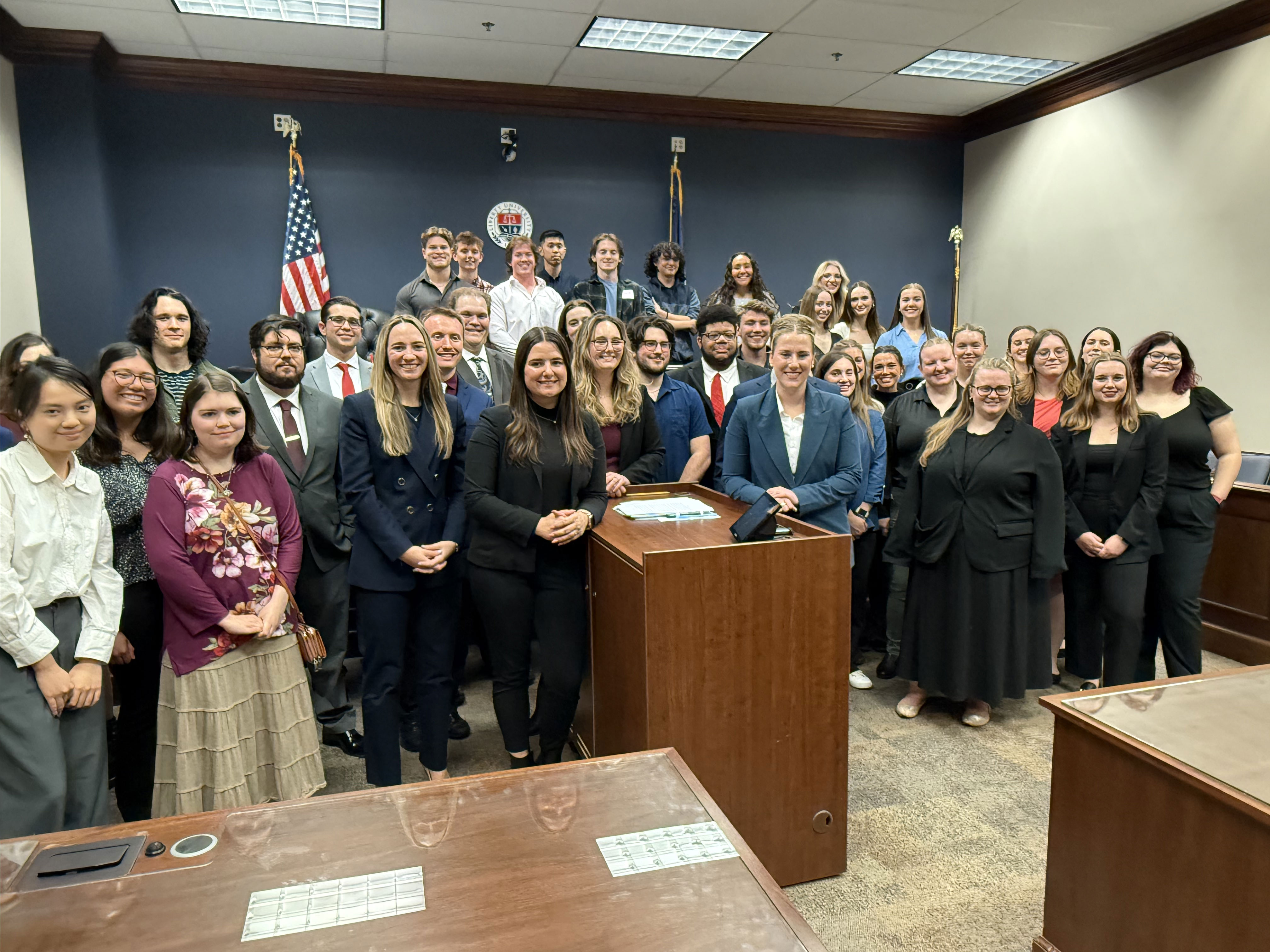Search News Archives
Filter News Articles
Additional Navigation
Forensic science program joins exclusive list for national FEPAC accreditation
March 25, 2019 : By Drew Menard - Liberty University News Service
Liberty University’s forensic science program has been awarded accreditation from the Forensic Science Education Programs Accreditation Commission (FEPAC), joining a list of only about 27 institutions or programs nationwide to hold the distinction.
“Not many schools have the accreditation,” said Dr. J. Thomas McClintock, professor of biology and forensic science program director. “Securing the accreditation is great for our students. It’s going to make them more marketable and put them on an equal playing field with graduates from other (FEPAC-accredited) programs.”
“Dr. McClintock has worked tirelessly to establish this accredited program in a short period of time as one of the best in the country,” added Dr. Ralph Linstra, dean of Liberty’s School of Health Sciences. “We are very pleased with his performance and he serves our students well as the ideal role model regarding competency and professionalism in the field of forensics.”
“As students apply for graduate school or potential employers, the individuals making the decisions to accept and hire them will know Liberty’s graduates have been trained equally well as any university accredited by the commission,” McClintock said. “The academic quality standards have been met.”
As part of the Department of Biology & Chemistry, housed in Liberty’s Center for Natural Sciences, the forensic science program boasts a state-of-the-art lab with the latest technology, including a genetic analyzer and a DNA extractor.
“To have training in aseptic technique, minimization of contamination and cross-contamination, with some good laboratory skills and application, is going to make you a better forensic scientist,” McClintock said.
Students in the program also have numerous opportunities for hands-on learning, including simulated court cases, crime scenes, and terrorist attacks, where they collaborate with federal and local government agencies. Extra-curricular research projects have also included analyzing DNA samples of deformed skulls of mummies unearthed in Peru and blood samples from a Civil War field hospital. (Learn more about how students get “A Closer Look” in groundbreaking research projects.)
“Dr. McClintock is a recognized expert in forensic DNA analysis having participated in numerous high-profile court cases as an expert in DNA identification,” Biology & Chemistry Chair Dr. David DeWitt said. “He has brought a ‘real world’ perspective to our forensic science major. Through events like the simulated bioterror attack and the mock trial in partnership with Liberty’s law school, our graduates are well prepared for the job market.”
Liberty received FEPAC accreditation at the earliest opportunity. Programs must graduate two classes of students to be eligible. The B.S. in Forensic Science launched in 2014, graduating its first class in 2016. Liberty filed for accreditation the year after its second class graduated and submitted a 1,100-page self-study. FEPAC granted Liberty’s accreditation for the full five-year eligibility period.
“Dr. McClintock worked countless hours to assemble all of the required documentation,” DeWitt said. “Not every program that seeks FEPAC accreditation receives it, so this is a testimony to his hard work. We are blessed to have him in our department.”
McClintock is also working to obtain a separate accreditation for Liberty’s Forensic Science Lab, that would allow the university to start a Center for Justice (similar to the Innocence Project) to examine DNA evidence in both cold and active cases where there is a claim of wrongful conviction. The center would operate in collaboration with Liberty’s School of Law and the Helms School of Government’s criminal justice program.
The Liberty University Department of Biology & Chemistry offers 10 unique undergraduate programs, including biomedical sciences (pre-med), biotechnology, chemistry, forensic science, and zoo & wildlife biology. Graduate programs include a Master of Science in Biomedical Sciences and a Ph.D. in Anatomy & Cell Biology.


